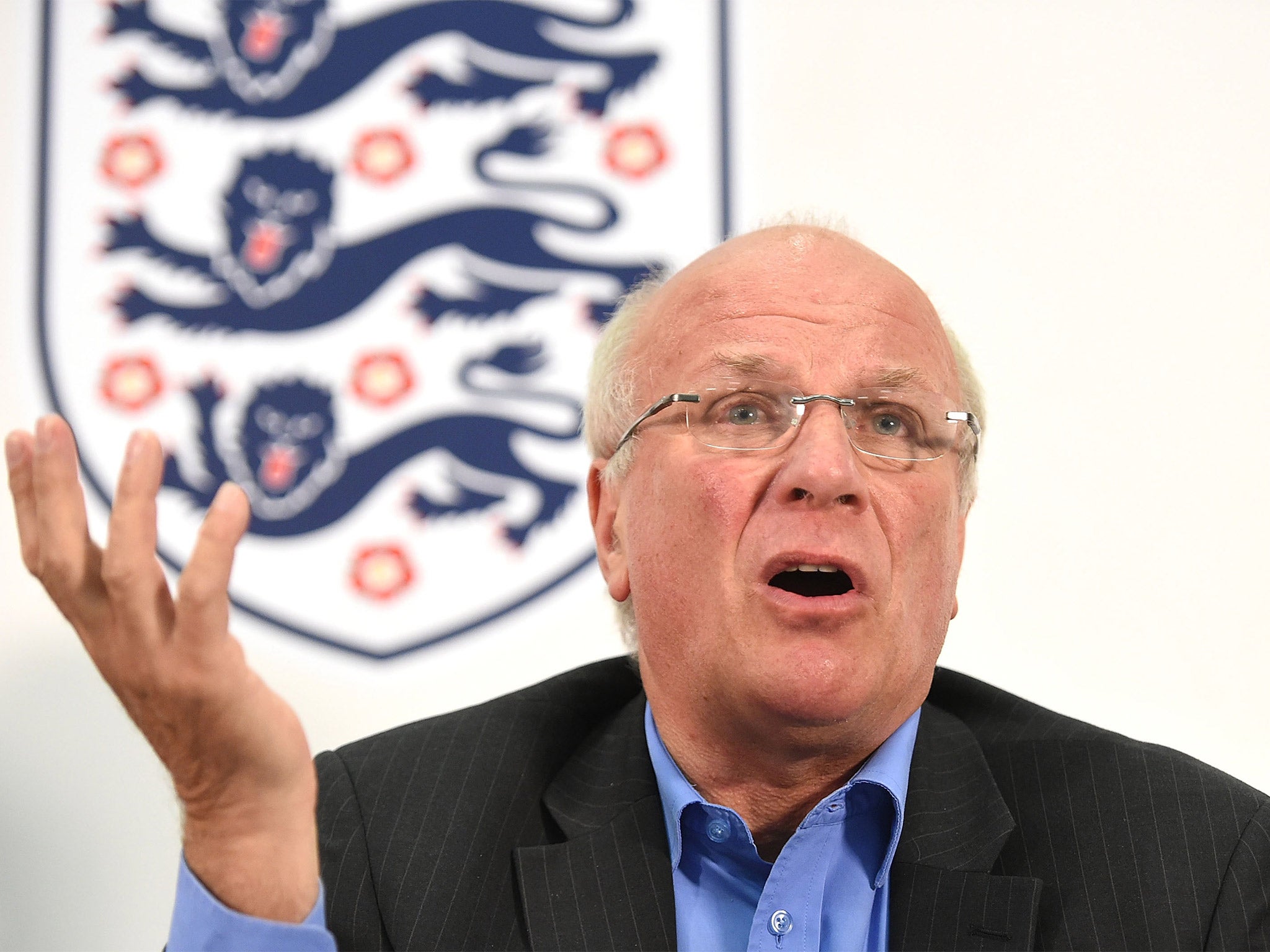FA chairman Greg Dyke proposes overhaul of grassroots football
The changes are designed to improve the fortunes of the England team in the long run

Your support helps us to tell the story
From reproductive rights to climate change to Big Tech, The Independent is on the ground when the story is developing. Whether it's investigating the financials of Elon Musk's pro-Trump PAC or producing our latest documentary, 'The A Word', which shines a light on the American women fighting for reproductive rights, we know how important it is to parse out the facts from the messaging.
At such a critical moment in US history, we need reporters on the ground. Your donation allows us to keep sending journalists to speak to both sides of the story.
The Independent is trusted by Americans across the entire political spectrum. And unlike many other quality news outlets, we choose not to lock Americans out of our reporting and analysis with paywalls. We believe quality journalism should be available to everyone, paid for by those who can afford it.
Your support makes all the difference.The Football Association chairman Greg Dyke has proposed a radical £230m overhaul of grassroots football in 30 of England’s largest cities and towns in which new “hubs” of 3G artificial pitches will be laid to facilitate year-round play.
The proposal is the second part of Dyke's controversial commission into the future of the English footballer, which attracted major opposition earlier in the year when it proposed Premier League B–team sides in the lower divisions and an overhaul of the loan system.
While those ideas were met with short shrift, it is likely that Dyke’s drive to rejuvenate England’s ailing playing fields by 2020 will be met with much greater sympathy. The next challenge will be to raise the finance from the FA and the other major stakeholders, including the Premier League, government and local authorities, who will provide the land for the new 3G pitches.
As for the B-team idea, Dyke accepts that reaction to the proposal was “not favourable” but said that there was still the possibility that B-teams could compete in cup competitions.
Now the FA is trying to address years of neglect in urban areas where pitches are often unplayable through the winter months, and changing rooms are decrepit. The commission has found that England lags far behind other European countries in its installation of 3G pitches. England has 639 full-size, public access 3G pitches compared to 3,735 in Germany.
Dyke’s commission, that included Rio Ferdinand, Danny Mills, Glenn Hoddle and Roy Hodgson, found that poor facilities were a key issue for children and amateur players. Research showed that 81 per cent of players had missed games because of bad weather. By contrast, 3G pitches are more durable and can withstand up to 80 hours playing time a week, compared with the five hour maximum for a natural grass pitch.
The aim is to increase the number of 3G pitches in towns and cities by 130 per cent by 2020 to more than 500. The Football Foundation, the Premier League’s charitable initiative will continue to build 25 a year. The overall number will rise to more than 1,000. “If we can do the hubs I think we can transform football,” Dyke said.
The FA has announced that there is already funding in place for a pilot scheme for the “hubs” in Sheffield to start later this year. The hubs would be run by local organisations or trusts, taking the management of pitches out of the control of local authorities.
Dyke said: “Arsene Wenger said to me that the problem with English football is that your [English] boys are not technically good enough by the time they are ten years old. I am not sure we buy that but it means looking at facilities and looking at coaching.”
In spite of the central government cuts anticipated in local authority funding, Dyke said that the FA had already fielded a lot of interest in the hub concept from councils. They see it as a way of cutting out the running costs of expensive facilities in return for an initial capital payment. As well funding from the Premier League, and the Football Foundation, some hubs will also seek private sponsorship investment.
Dyke said that he would also look for savings at the FA to fund its part of roughly pnds50m a year. “All organisations that are not taking off overheads are putting them on. I don’t think it [the FA] is flabby. What I mean is we will look at what we can stop doing [to make savings]”.
There are new figures out that illustrate the diminishing number of English footballers in the Premier League. Already this season there has been a three per cent drop to 25 per cent of the proportion of English players starting games for top six clubs. Of the 17 clubs that have been in the top-flight this season and last, there has been a seven per cent drop in English players on squad lists from last year.
Join our commenting forum
Join thought-provoking conversations, follow other Independent readers and see their replies
Comments